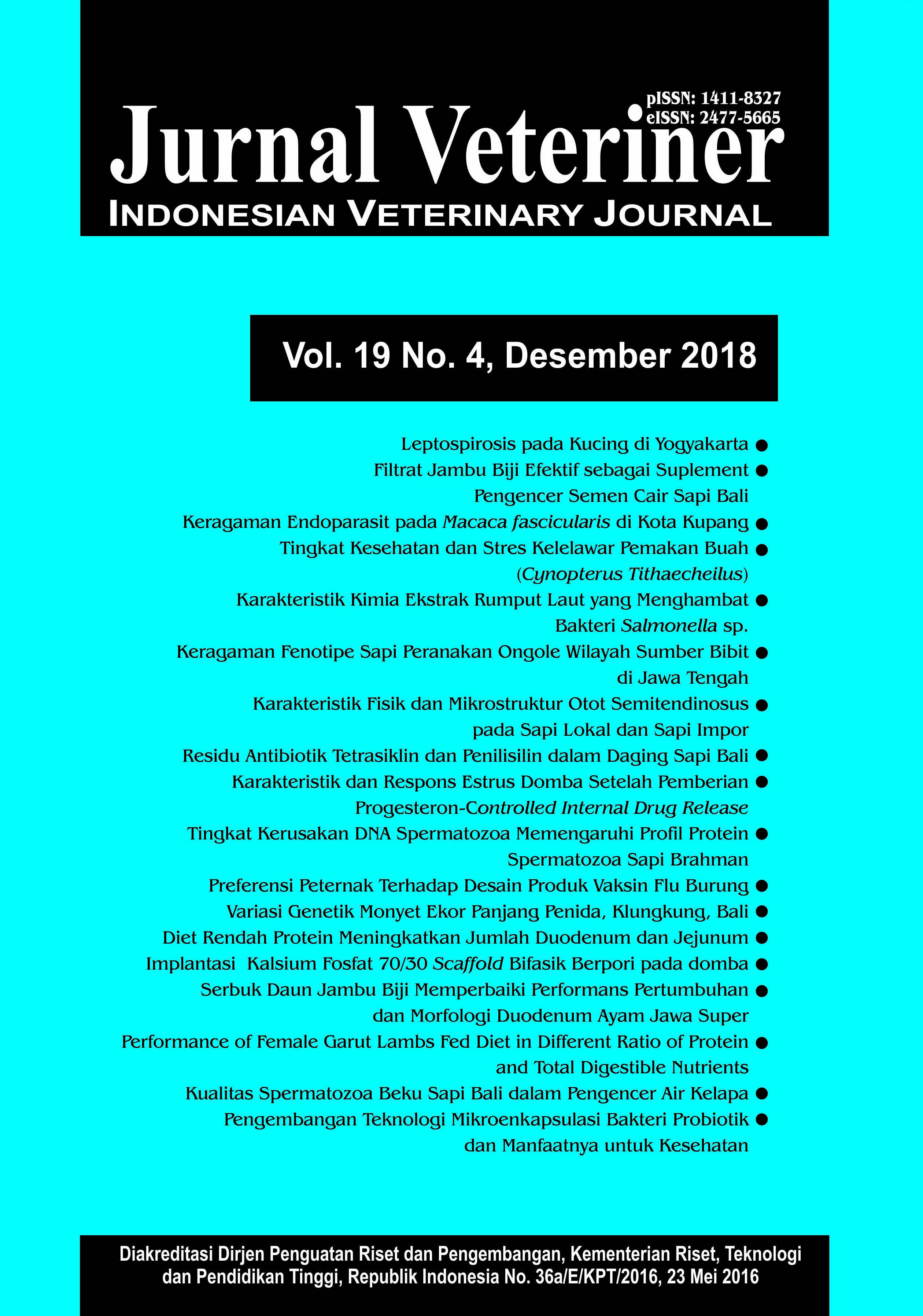Keragaman Endoparasit pada Macaca fascicularis dan Potensi Zoonotiknya dengan Cuaca Berbeda di Kota Kupang (ENDOPARASITIC DIVERSITY IN MACACA FASCICULARIS AND ITS ZOONOTIC POTENTIAL ON DIFFERENT WEATHER IN KUPANG CITY)
Abstract
Long-tailed macaque (Macaca fascicularis) belongs to least concern categories of animals, and often found in various regions of Indonesia, including Kupang, East Nusa Tenggara. Their habitat are one of the tourist destinations, causing interaction between them and humans. The interaction facilitates the transmission of disease agents, for example endoparasit. This study was conducted to find out the diversity and prevalence of endoparasites in long-tailed macaque, weather effects, and zoonotic potential in Kupang City. Fifty fecal samples were collected and analyzed using formalin ethyl acetate concentration technique (FECT). A total of six endoparasites were recovered including four helmints (hookworm, Strongyloides, Toxocara, and Acantocephala) and two protozoans (Balantidium coli and Entamoeba sp.). The highest prevalence of infection occurred in February (rainfall 302.4 mm) and consisted of hookworm (86%) and B. coli (66%). If rainfall increases, prevalence will also increase. The high prevalence of parasites is not always associated with the appearance of clinical symptoms. An individu diagnosed with parasites if the eggs or cysts have been identified from the faeces. The high prevalence caused by the absence of deworming program. Among the endoparasites that have been found, some of which are potentially zoonotic, such as: Strongyloides sp., Toxocara sp., Acanthocephala, B. coli, and Entamoeba sp.



















